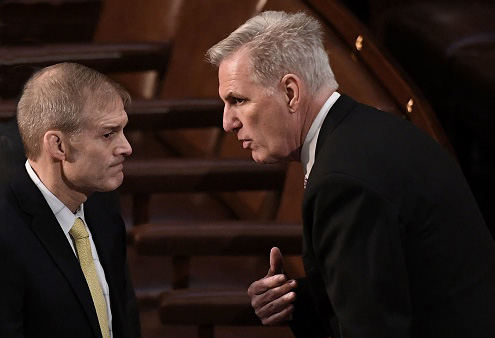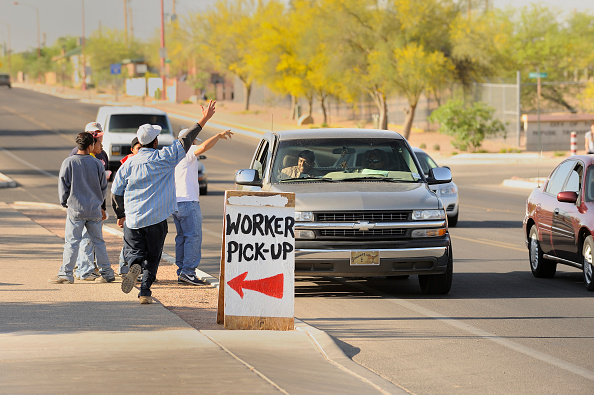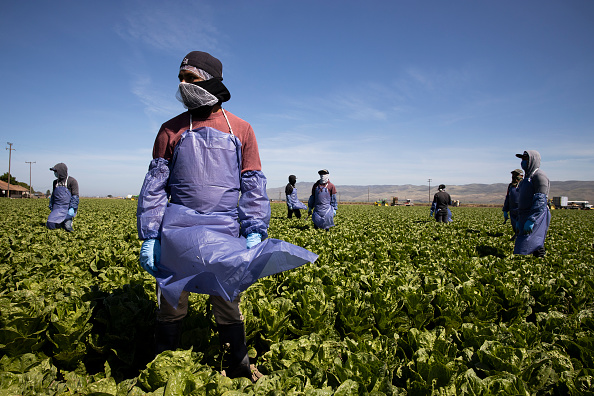
Last December, immigration and farm advocates from across the political spectrum were sorely disappointed when the Affordable and Secure Food Act failed in the U.S. Senate. The bill originated in the U.S. House (as the Farm Workforce Modernization Act), where it passed with overwhelming bipartisan support: In addition to all but one of the House Democrats voting yes, 30 House Republicans agreed to advance the bill to the Senate.
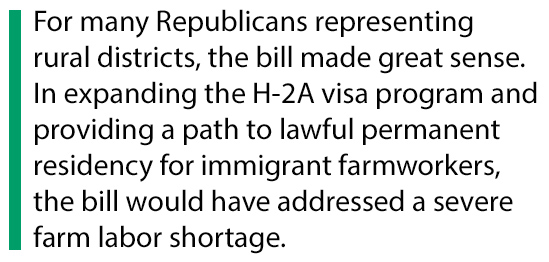 For many Republicans representing rural districts, the bill made great sense. In expanding the H-2A visa program and providing a path to lawful permanent residency for those who obtain “certified agricultural worker” status, the bill would have addressed a severe farm labor shortage that has crippled farmers and driven up food costs for consumers. According to the U.S. Department of Agriculture, roughly half of the country’s crop farmworkers are undocumented. Zach Rutledge, assistant professor in the Department of Agriculture at Michigan State University, told Ideaspace that extensive surveying shows that half of U.S. farms are experiencing labor shortages, with the average shortage at roughly 20 percent. Meanwhile, in August of last year, the rate of inflation for food shot up to 11.4 percent, the highest since May of 1979. And food costs are expected to continue to rise above historical averages in 2023.
For many Republicans representing rural districts, the bill made great sense. In expanding the H-2A visa program and providing a path to lawful permanent residency for those who obtain “certified agricultural worker” status, the bill would have addressed a severe farm labor shortage that has crippled farmers and driven up food costs for consumers. According to the U.S. Department of Agriculture, roughly half of the country’s crop farmworkers are undocumented. Zach Rutledge, assistant professor in the Department of Agriculture at Michigan State University, told Ideaspace that extensive surveying shows that half of U.S. farms are experiencing labor shortages, with the average shortage at roughly 20 percent. Meanwhile, in August of last year, the rate of inflation for food shot up to 11.4 percent, the highest since May of 1979. And food costs are expected to continue to rise above historical averages in 2023.
So why did the Affordable and Secure Food Act fail in the Senate?
In mid-December, things were looking up when Sen. Michael Bennet (D-CO) introduced the Affordable and Secure Food Act, which was to be added to the omnibus package that would be voted on in the final days of the 117th Congress. Sen. Michael Crapo (R-ID) had been deeply involved in negotiating the new bill. With all 50 Senate Democrats lined up for support, Sen. Crapo would be responsible for recruiting enough Senate Republicans to overcome the 60-vote filibuster. Passage appeared imminent. But in the 11th hour, Sen. Crapo withdrew his support, citing in an op-ed what he called “two main sticking points”: the bill’s failure to provide a sufficient number of year-round visas and a provision that would have extended to H-2A workers the right to sue over workplace violations. Sen. Crapo feared the provision would “expose Idaho family farms to excessive litigation.”
 For those wanting to criticize Sen. Crapo for withdrawing support for a bill that many say was headed in the right direction, the lawmaker found more than enough political cover when the American Farm Bureau Federation (AFBF) also came out against the Affordable and Secure Food Act. In addition to echoing Sen. Crapo’s concerns, the AFBF said the bill would have established mandatory minimum wage rates for agricultural workers that would be unsustainable for farmers.
For those wanting to criticize Sen. Crapo for withdrawing support for a bill that many say was headed in the right direction, the lawmaker found more than enough political cover when the American Farm Bureau Federation (AFBF) also came out against the Affordable and Secure Food Act. In addition to echoing Sen. Crapo’s concerns, the AFBF said the bill would have established mandatory minimum wage rates for agricultural workers that would be unsustainable for farmers.
“It’s problematic that the proposal codifies the flawed methodology of the Department of Labor’s farm labor survey, which has led to wild swings in wage rates that are beyond the reach of many farmers,” Sam Kieffer, AFBF vice president of public policy, said in a statement.
Kieffer was addressing the Adverse Effect Wage Rate (AEWR), which refers to the minimum wage a farm employer must pay to a foreign worker operating under the H-2A visa program. AEWRs are mandated by the federal government; the idea is to maintain a high enough minimum wage for foreign workers so as to not have an “adverse effect” on the wage rates of native-born workers. AEWRs vary in different regions of the country, according to each region’s unique job market factors.
As for the claim that the AEWRs are based on a “flawed methodology,” the Cato Institute offered the following analysis in March 2020:
DOL adjusts the AEWR annually based on a survey and uniquely classifies overtime, hazard pay, bonuses, performance incentives, and all other payments as wages. This inflates the base hourly rate before adding these types of extra compensation for the following year. This inflated average rate then applies to all workers, pricing out H-2A and U.S. workers who had below-average wages. When these workers drop out, the surveyed wage is artificially inflated even further.
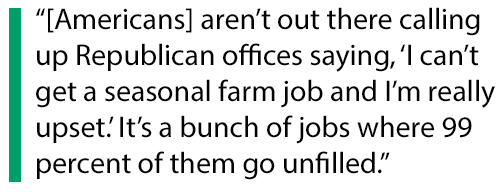 While the Affordable and Secure Food Act does not address the DOL’s methodology for determining AEWRs, the bill states that wage rates cannot be more than 3 percent higher than the previous year’s wage rates. The 2023 AEWRs saw increases of between 5 and 10 percent in most of the U.S.; 13 percent in Minnesota, Wisconsin, and Michigan; 14 percent in Alabama, Georgia, and South Carolina; and a whopping 15 percent in Florida. Sen. Crapo himself lamented in his op-ed that the “flawed methodology of this system has led to the AEWR in Idaho increasing by 40 percent since 2015.” Had the Affordable and Secure Food Act passed, those year-over-year increases would have been capped at 3 percent, saving farmers hundreds of millions of dollars in labor costs.
While the Affordable and Secure Food Act does not address the DOL’s methodology for determining AEWRs, the bill states that wage rates cannot be more than 3 percent higher than the previous year’s wage rates. The 2023 AEWRs saw increases of between 5 and 10 percent in most of the U.S.; 13 percent in Minnesota, Wisconsin, and Michigan; 14 percent in Alabama, Georgia, and South Carolina; and a whopping 15 percent in Florida. Sen. Crapo himself lamented in his op-ed that the “flawed methodology of this system has led to the AEWR in Idaho increasing by 40 percent since 2015.” Had the Affordable and Secure Food Act passed, those year-over-year increases would have been capped at 3 percent, saving farmers hundreds of millions of dollars in labor costs.
“Stakeholders across the country, doesn’t really matter if it’s red or blue, are raising the alarm of saying, ‘We knew this was going to happen. We knew that we were going to be in a bad place,’ and unfortunately Congress didn’t act,” an aide to Sen. Bennet told Ideaspace. “Now [farmers and ranchers] are having to pay for that, or [make] operational decisions to no longer plant, or cut costs in other ways in order to pay for these wages so that in a time of inflation, in a time of the war in Ukraine where we’re already facing food supply issues, these folks are having to make really hard decisions.”
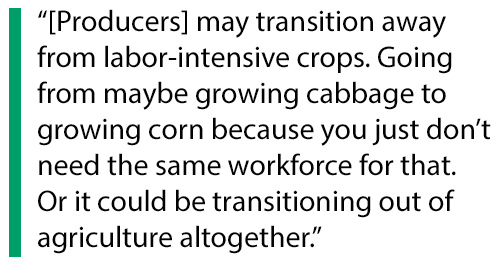 In addition to the 3-percent year-over-year cap on AEWRs, the Affordable and Secure Food Act would have created a single rate for each region. The status quo sees different AEWRs for different jobs. So if an ag worker spends a work week rotating from planting to picking, or from packing to driving a truck, farm employers must pay a different rate for each of those jobs.
In addition to the 3-percent year-over-year cap on AEWRs, the Affordable and Secure Food Act would have created a single rate for each region. The status quo sees different AEWRs for different jobs. So if an ag worker spends a work week rotating from planting to picking, or from packing to driving a truck, farm employers must pay a different rate for each of those jobs.
“The administrative burden of what that rule is doing to, especially small producers, creates a situation which is really unsustainable,” said the Bennet aide. “And so what our bill would have done would have really simplified the AEWR.”
When reached for comment, the AFBF responded via email, saying, “It would be inappropriate to speculate on legislation that is not currently being considered.”
According to David Bier, associate director of Immigration Studies at the Cato Institute and the author of the aforementioned Cato analysis of AEWRs, while the bill was certainly an improvement on the status quo for farmers, the AFBF is seeking an “absolute cap” that would effectively freeze wage rates.
“And it’s very unlikely that a Democrat will sign on to that position,” said Bier, who added that the Republicans and the AFBF have no incentive to allow increases in AEWRs for any reason — including increases aimed at protecting wages for native-born workers.
“[Americans] aren’t out there calling up Republican offices saying, ‘I can’t get a seasonal farm job and I’m really upset,’” he said. “It’s a bunch of jobs where 99 percent of them go unfilled, according to the advertisements put out there by the Labor Department. So there’s no serious take that this is displacing U.S. workers.”
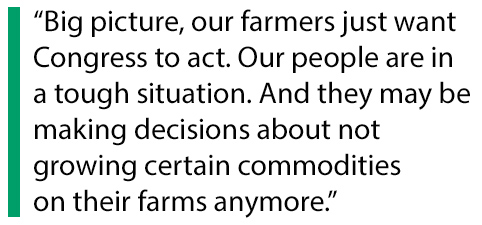 In effect, what the AFBF is seeking is an unlimited supply of cheap foreign farm labor with limited rights and protections. An argument can be made that this is close to the present system in which a large supply of undocumented workers with limited rights find their own way into the agricultural workforce. The problem is that the present system isn’t working well for either farmers or workers, but Congress (or, put more precisely, 60 percent of the Senate) hasn’t been able to agree on a solution.
In effect, what the AFBF is seeking is an unlimited supply of cheap foreign farm labor with limited rights and protections. An argument can be made that this is close to the present system in which a large supply of undocumented workers with limited rights find their own way into the agricultural workforce. The problem is that the present system isn’t working well for either farmers or workers, but Congress (or, put more precisely, 60 percent of the Senate) hasn’t been able to agree on a solution.
In the meantime, while the AFBF is meant to lobby Washington on behalf of farmers, many of the state farm bureaus they represent remain supportive of the Affordable and Secure Food Act.
Lauren Williams, deputy director of public policy at the New York Farm Bureau, told Ideaspace that she and her constituents were disappointed that the Affordable and Secure Food Act failed. In addition to the AEWR reforms, the bill would have provided H-2A visas for year-round jobs for the first time. Williams said both provisions would have been extremely helpful to New York’s struggling dairy farmers.
“[The provisions] weren’t perfect, but they were acceptable for our folks,” said Williams, who contends that letting the perfect be the enemy of the good will have deleterious effects on the agricultural industry. “[Producers] may transition away from labor-intensive crops to less labor-intensive crops. Going from maybe growing cabbage to growing corn because you just don’t need the same workforce for that. Or it could be transitioning out of agriculture altogether simply because of the cost of labor. And I think the wider implications are, are we seeing production agriculture transition to other countries?”
John Kran, national legislative counsel to the Michigan Farm Bureau, said Michigan farmers are in dire need of the reforms in the Affordable and Secure Food Act. In addition to the bill’s year-round visas (which grew from 20,000 to 26,000 as the bill moved from the House to the Senate) and a more predictable AEWR structure, he said the Michigan Farm Bureau supported the Senate bill because it would have provided a long-term labor solution. He cited the bill’s requirement for certified agricultural workers to stay in the agricultural industry for 10 years in order to obtain a green card, and tweaks to the bill’s mandatory E-Verify provision (the federal program for checking the immigration status of workers) that would have given farmworkers with false documents the time to obtain legal status before E-Verify flagged their undocumented status.
 “Big picture, our farmers just want Congress to act,” said Kran. “Our people are in a tough situation. And they may be making decisions about not growing certain commodities on their farms anymore. So we need Congress to act and we need them to do something, even if it’s smaller, piecemeal type fixes that’ll make a difference until there’s a chance they do something broader like a Bennet bill again.”
“Big picture, our farmers just want Congress to act,” said Kran. “Our people are in a tough situation. And they may be making decisions about not growing certain commodities on their farms anymore. So we need Congress to act and we need them to do something, even if it’s smaller, piecemeal type fixes that’ll make a difference until there’s a chance they do something broader like a Bennet bill again.”
Rep. Jimmy Panetta (D-CA), who worked closely with Rep. Zoe Lofgren (D-CA) on the Farm Workforce Modernization Act, told Ideaspace that the AFBF’s position was a factor in the Senate’s failure to pass the Affordable and Secure Food Act.
“Obviously you’re frustrated by the fact that the AFBF was at the table during these negotiations and then still didn’t fully support the bill,” said the congressman. “The issues that were raised in [the op-ed] by Sen. Crapo were issues that were brought up and discussed during the negotiations in the House. It’s just kind of disappointing that the compromise that we agreed upon was not agreed upon by Sen. Crapo or the stakeholders who were getting to him to influence his position.”
Though Rep. Panetta concedes that any bill on immigrant farm labor will have a tough time making it to the floor of a House now controlled by Republicans, he’s confident that there remain “plenty of Republican members who are willing to lean into this type of bill, that obviously helps the economy [in their home districts].”
In any event, as the bill last failed in the Senate, Rep. Panetta believes that negotiations leading up to the next iteration of the bill would be more fruitful in the Senate rather than the House.
“We did our job,” said the congressman. “Now it’s time for the Senate to step up and do its job in hopefully finding 10 Republicans who are willing to get serious about not just immigration reform, but also our economy in realizing that we continue to need people who are willing to do the work that no Americans do.”
According to the Bennet aide, Sen. Bennet believes it is important that the Senate “act on the bill this year,” and talks with Senate Republicans are already underway.
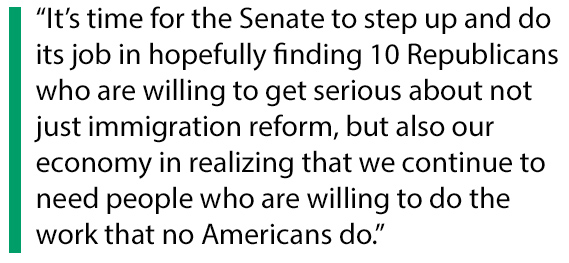 “We’re continuing to talk to potential Republican partners,” said the aide. “We would love to have the support of those we’ve worked with in the past, and there are several other Republicans who showed interest throughout the process last Congress, who we hope can help us get the bill past the 60-vote filibuster.”
“We’re continuing to talk to potential Republican partners,” said the aide. “We would love to have the support of those we’ve worked with in the past, and there are several other Republicans who showed interest throughout the process last Congress, who we hope can help us get the bill past the 60-vote filibuster.”
The Bennet aide added that the progress made in the last Congress will help in coming to terms on a new piece of legislation. “It’s helpful that we have a bill that has gone through a negotiating process, which is not where we were at the beginning of last Congress,” said the aide. “So I think we’re far ahead in terms of the content and the policy and, ultimately, I think we have to work out the politics.”
Working out those politics is a tall order, especially with a Republican-led House that is prioritizing border security, and a looming presidential election in which the Republican nominee will surely take a hard stance on immigration reform.
Said Bier: “It’s a pretty tough environment right now on immigration. I do think the fact that the environment is so bad and the Republican leadership doesn’t want to see an immigration deal plays into how negotiations [for the Affordable and Secure Food Act] go down in this Congress.”
Read More:
